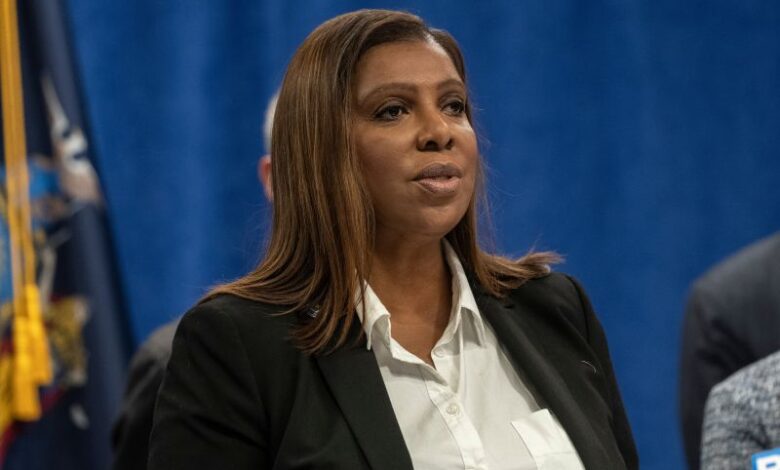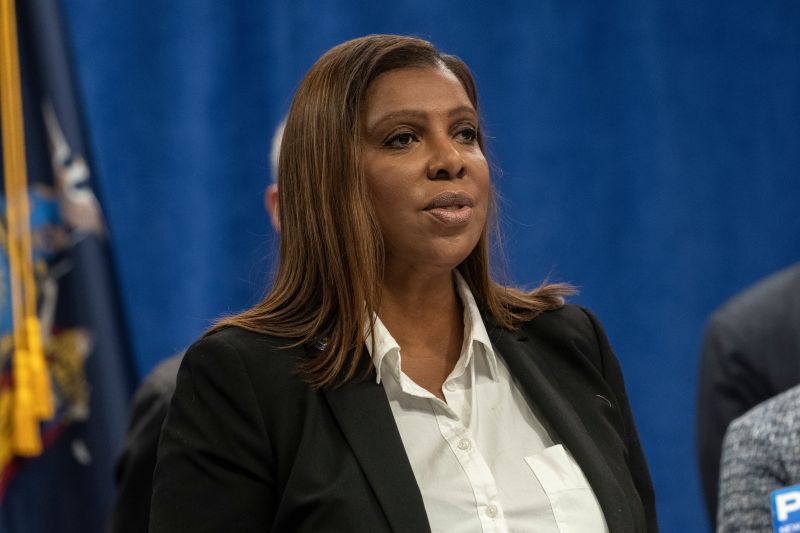Judge blocks referendum to enshrine abortion in New York Constitution; state to appeal

 New York Attorney General Letitia James speaks to the media on May 26, 2022, in New York City. / Credit: Shutterstock
New York Attorney General Letitia James speaks to the media on May 26, 2022, in New York City. / Credit: Shutterstock Washington, D.C. Newsroom, May 7, 2024 / 18:00 pm (CNA).
A New York Supreme Court judge ruled that a referendum to enshrine a right to abortion in the state’s constitution cannot appear on the ballot in November because the state did not follow the proper procedure — but the state plans to appeal the decision.
The proposed “Equal Rights” amendment would have established broad rights to “reproductive health care” by prohibiting discrimination based on “pregnancy, pregnancy outcomes, and reproductive health care and autonomy.”
Although the text avoids use of the word “abortion,” the proposal was widely seen as creating a constitutional protection for women to access abortion.
In a ruling on Tuesday, Judge Daniel J. Doyle ordered that the referendum be removed from the Nov. 5 ballot because lawmakers did not follow the procedure laid out in the state constitution.
According to the New York Constitution, lawmakers must submit proposed amendments to the attorney general for review before they can adopt the language. The attorney general must respond within 20 days of the submission, but if the attorney general does not respond in that time frame, the lawmakers can proceed without that official’s input.
Even though the lawmakers referred the language to the attorney general, the lawmakers voted on the referendum on the same day that they referred it to the attorney general. They had not received a response, nor had they waited 20 days. According to the judge’s ruling, this vote was in violation of the New York Constitution because it bypassed the proper procedure.
“The constitution is the supreme will of the people,” Doyle said in his ruling.
“This court cannot condone the actions taken by the Legislature in derogation of the expressed will of the people,” Doyle continued. “The Legislature’s vote … prior to receiving the opinion of the attorney general frustrated the deliberative process intended by the people in [the state constitution].”
New York Attorney General Letitia James said in a post on X that she intends to appeal the ruling.
“In New York, the Equal Rights Amendment was advanced to protect people’s fundamental rights like reproductive freedom and access to abortion care,” James said. “The decision to strike the ERA from the ballot in November is disappointing, and we’re appealing to defend New Yorkers’ rights.”
If the judge’s decision stands, it would force lawmakers to start the amendment process from the beginning. To approve an amendment to the constitution in New York, both chambers of the Legislature must approve the proposed language two years in a row — and then it can be placed on the ballot for a vote by the public.
Current abortion laws in New York allow women to abort their preborn children through the 24th week of pregnancy.
It’s unclear whether the proposed amendment would have extended this limit until birth. The language would have also promised equal protection under the law and prohibit any person, corporation, institution, or government agency from discriminating against a person covered under the law.
The proposed amendment would have also prohibited discrimination based on a person’s “sexual orientation, gender identity, [and] gender expression.”
Voters in various states are slated to vote on abortion-related referendums in November. In some states, petitioners are still working to get proposed constitutional amendments on the ballot.
In conjunction with her efforts to get abortion on the New York ballot, James is also suing pro-life pregnancy centers that offer resources to pregnant women without providing abortions. In her lawsuit, she accused these centers of providing false information about abortion pill reversal drugs.






